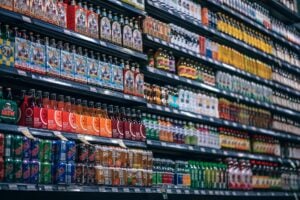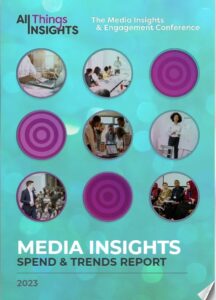Pinpointing when sustainability would reach an inflection point from a niche need in a few categories to an expectation across categories proved to be very hard among insight professionals over the past twenty years, with many incorrect prognostications along the way.
A common misconception among many leading brands and retailers is that sustainability remains niche in a few first-moving industries like food and fashion and they still have time to figure out their own sustainable goals and solutions. For insight professionals working at companies with this mindset, you have an opportunity to leverage your vast armies of data to dispel this myth and realign your organizations to the new reality that sustainability has already passed the inflection point.
The food and fashion industries tend to be first movers across a multitude of trends, from omnichannel shopping to fostering relationships with Millennials or Gen Z and even sustainability. While it is true that consumers around the world placed a higher importance on sustainability for products they ingest or are close to their skin for a long time, expectations for sustainable solutions can now be found across all categories consumers interact with on a daily basis.
According to Eastman’s consumer research, the majority of U.S. and European consumers are very interested in purchasing products made from recycled materials, with little differences between food contact applications, fashion, electronics, or further removed products like vehicle parts or power tools. Although brands and retailers still need to get a lot right to drive purchases of their sustainable solutions in these industries, consumer openness to sustainable solutions has passed the inflection point.

Social media, generational shifts, eco-industrial policy, and the COVID pandemic have accelerated consumer awareness of and desire for sustainable solutions. In addition, positive experiences with sustainable solutions and new technologies have also helped to foster more openness among consumers to adopt new solutions. Eastman’s consumer research finds that most U.S. and European consumers consider themselves to be on the leading edge or early adopters of new technologies, with only about 1 in 10 being self-professed laggards.

With trends emerging and taking hold at faster and faster rates, insight professionals have an opportunity and responsibility to help their companies assess the durability and impact of these trends, develop a strategy to take advantage of them, and champion the internal change management necessary to fulfill these strategies.
Sustainability has already hit the inflection point, but it is a complex and evolving topic. Even today, opportunities exist for insight professionals to identify new vectors of sustainability that can drive long-term growth and strategic advantages for their companies.
Click here for Justin Coates’ series for All Things Insights, “Exploring 10 Myths About Global Consumers & Sustainability.”
Contributor
-

Justin Coates is Eastman’s Head of Global Market Research & Consumer Insights, responsible for leading business intelligence, customer experience, user experience, foresighting, and consumer insights across Eastman. Before joining Eastman in 2017, Coates spent a decade at Cotton Incorporated managing their global consumer insights research and positioning himself as a thought leader on consumer trends with the world’s largest brands and retailers. He holds a Masters of Economics degree from North Carolina State University and a Bachelors of Arts degree in Political Science from High Point University. Coates lives with his wife and son in Kingsport, Tennessee.
View all posts







































































































